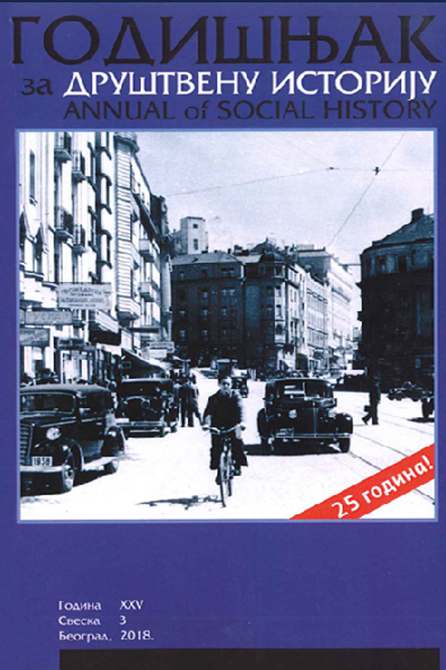Изгубљени у преводу Памћење деведесетих у јавном простору Београда
Lost in Translation. Remembering the 90’s in the Public Space of Belgrade
Author(s): Milica Božić MarojevićSubject(s): Social history, Sociology of Politics
Published by: Udruženje za društvenu istoriju
Keywords: monuments; war; Yugoslavia; 90’s; public space; legislation; memory
Summary/Abstract: The organization and regulation of public spaces have always been in the focus of every newly established government. We usually connect that tendency with the idea of the new regime’s representativeness and consolidation of their own ideology. However, even though new regimes are creating a credo that implies deleting (specific) values of the predecessors, that does not imply a complete abandonment of old(er) historical features. New regimes are trying to find something tolerable from the past so they can provide continuity in the ruling. (Re)interpretation of history and memory becomes very obvious when we consider recent visual and symbolical changes in public spaces of Belgrade. Urban landscapes are swamped with figural plastics dedicated to persons or events that are sometimes unknown to the general public, and their appearances are primarily based on the traditions of nineteenthcentury aesthetics. Renaming streets or schools, setting up new holidays, etc. are also very popular. However, an apparent increase in interest in memorialization does not apply to our remembering of the 1990s conflicts. This paper examines two monuments - memorial plaque dedicated to the Serbian victims from 1991 to 2000 t, as well as the Monument to Victims of War and the Defenders of the Fatherland from 1990 to 1999. The idea is to try to give some answers on questions: why do we have such a situation; to whom are new war monuments and memorials devoted; on what narrative are they based; what kind of message are they sending? How is it possible not to have а single monument dedicated to the suffering of the so-called „others“ in Belgrade? Besides, this paper critically examines the new Law on War Memorials, whose adoption only further complicated initiating and creating monuments for the victims of the recent civil wars in the Balkans. As one of the solutions for overcoming the current memorial gap, this paper proposes a thorough education, based on relevant facts and findings. That is very important because remembering past events that we are ashamed of is not just significant for the understanding of our present life, but also for finding approaches that we will practice against oblivion in the future.
Journal: Godišnjak za društvenu istoriju
- Issue Year: XXV/2018
- Issue No: 3
- Page Range: 83-100
- Page Count: 18
- Language: Serbian

